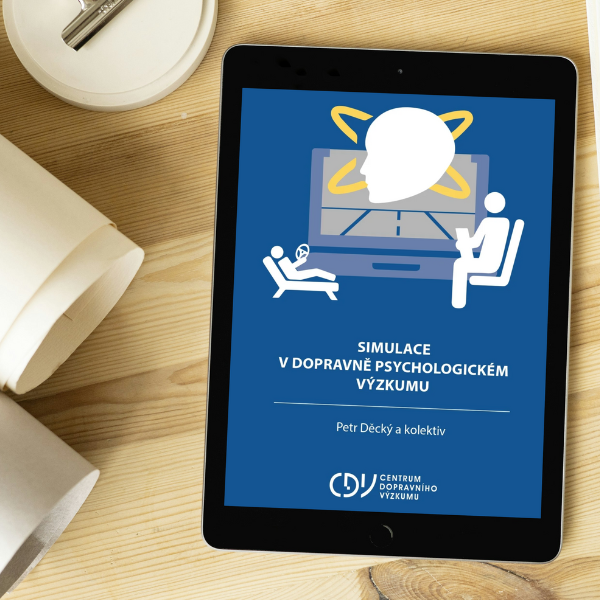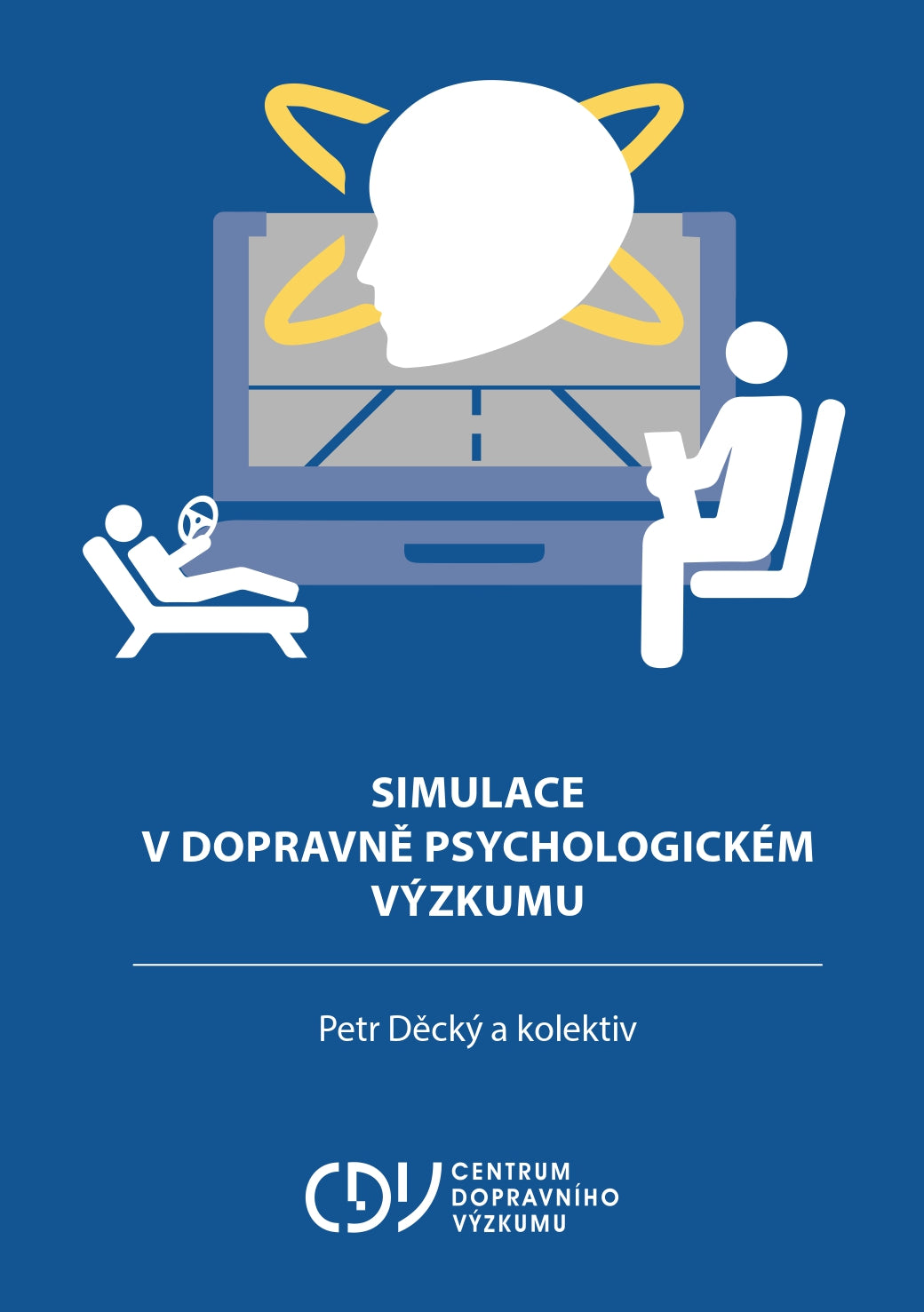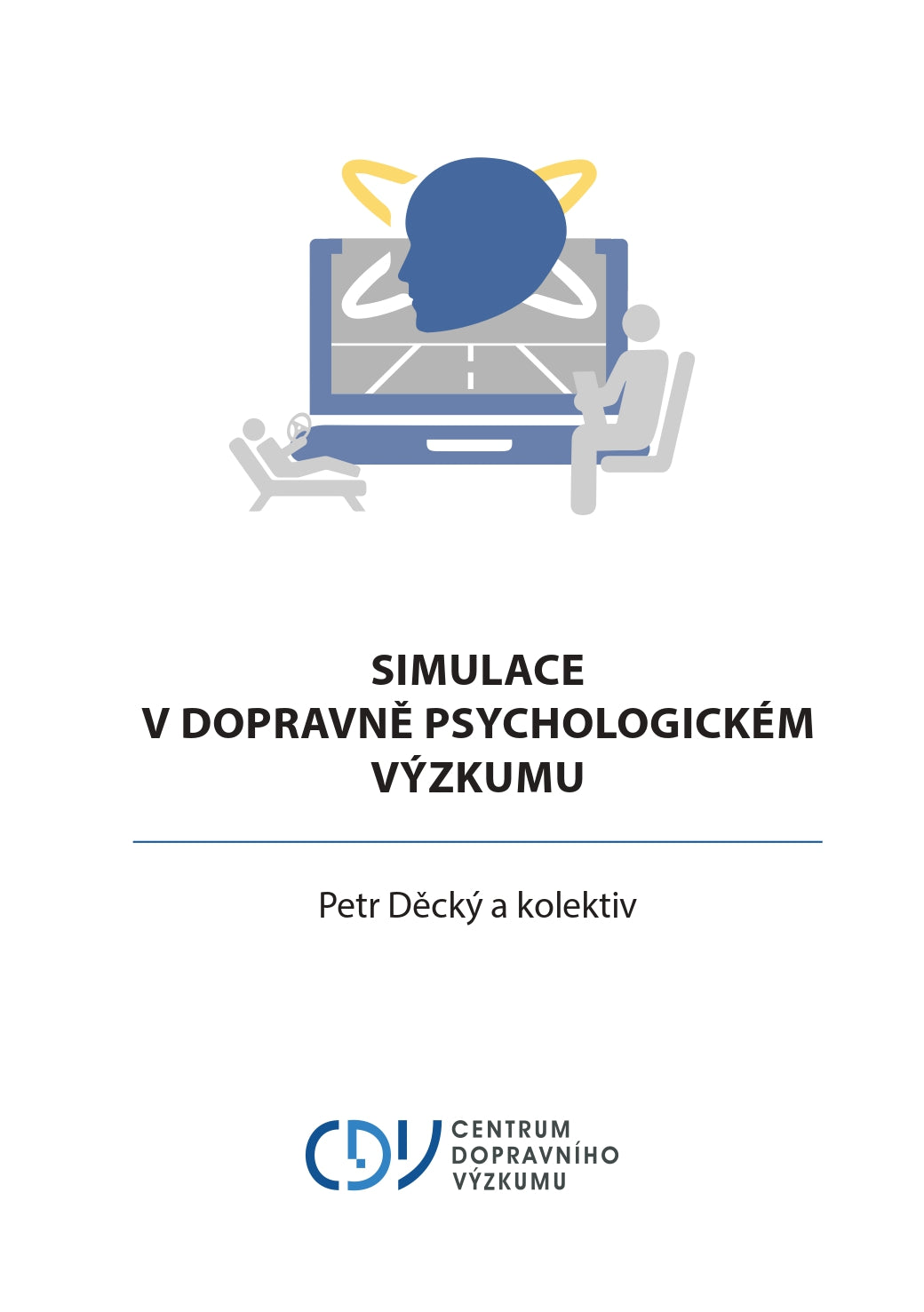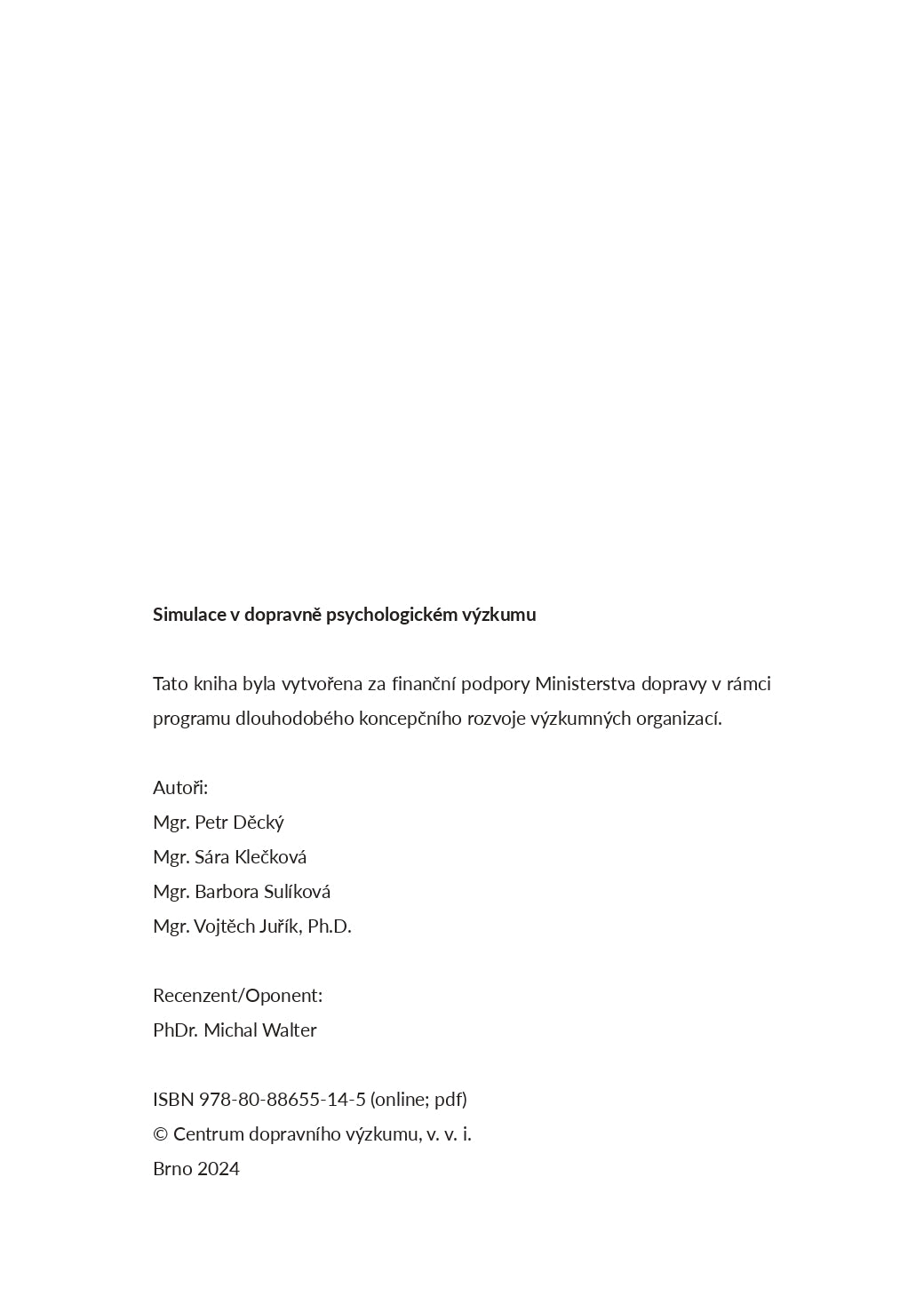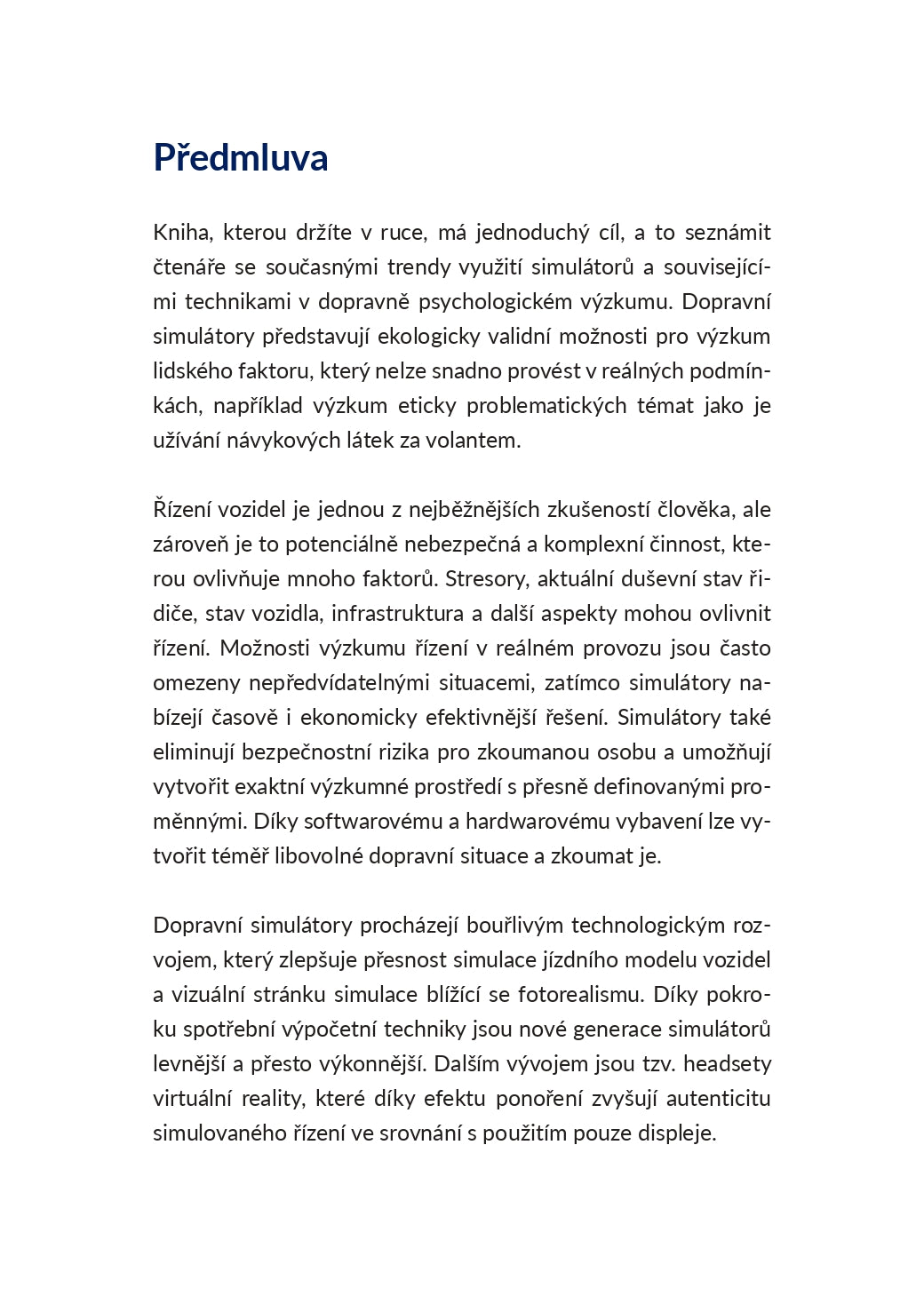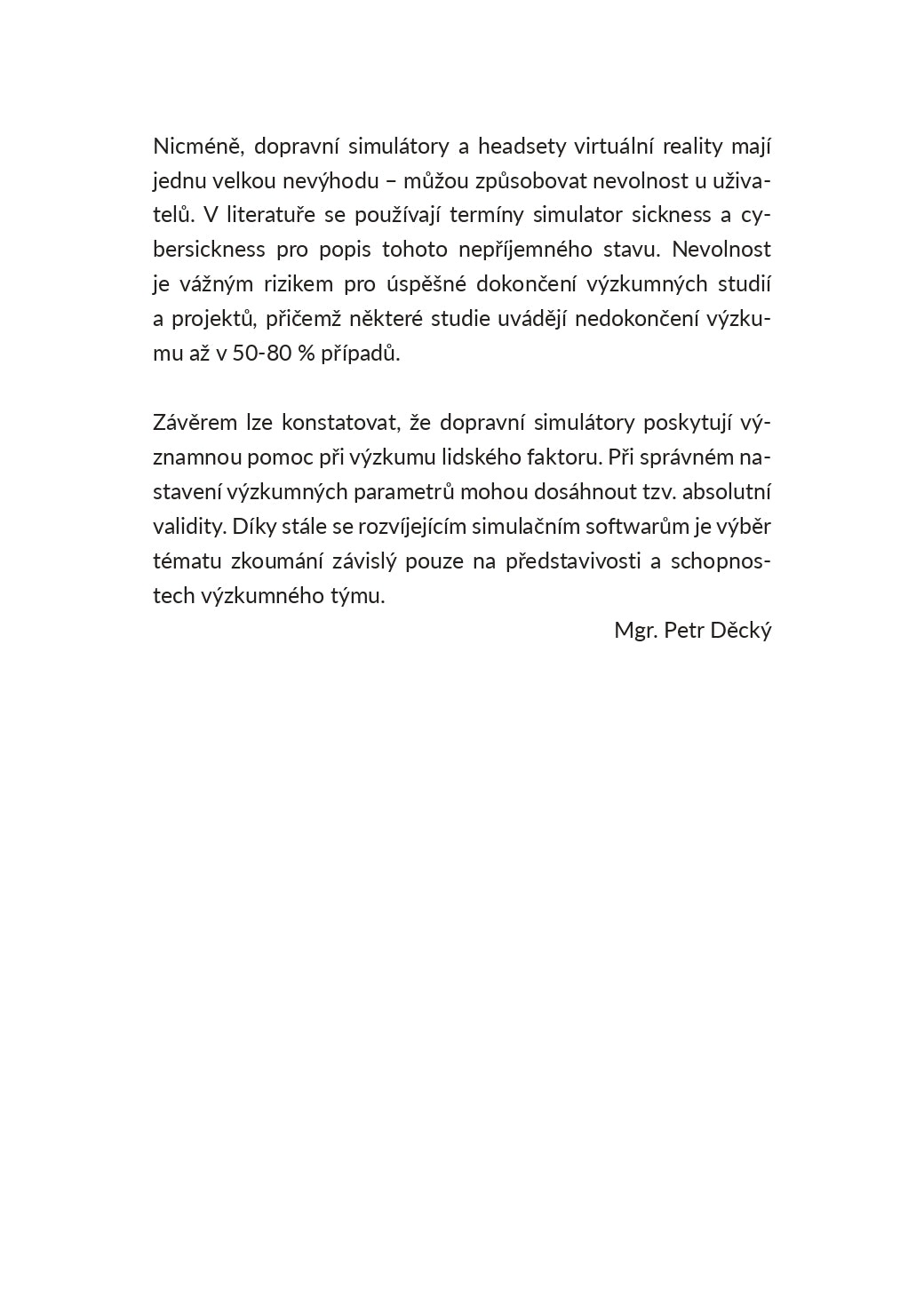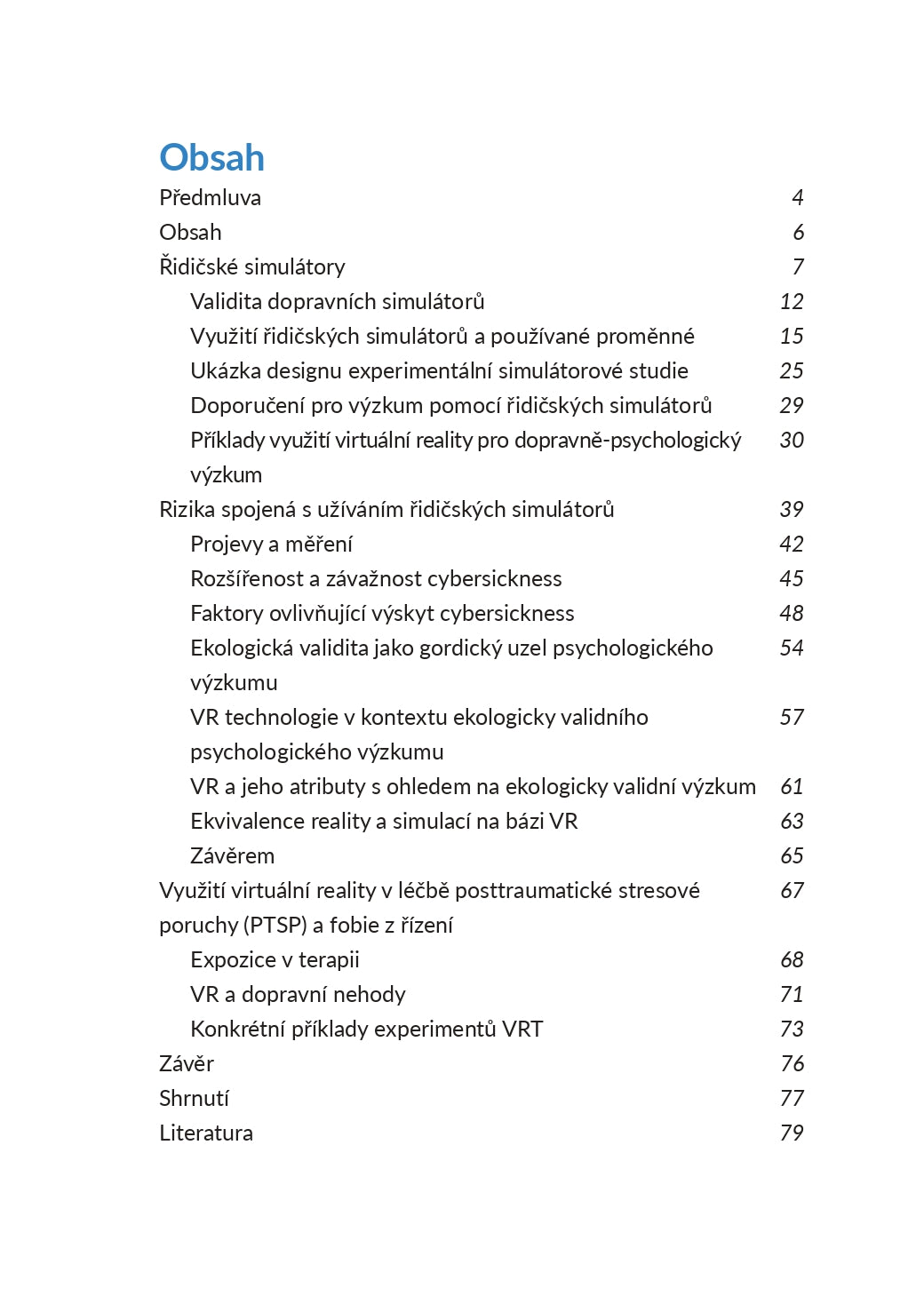E-book
Simulation in traffic psychology research
Simulation in traffic psychology research
Couldn't load pickup availability
The book aims to familiarize readers with current trends in the use of simulators and related techniques in traffic psychology research. Traffic simulators represent ecologically valid options for human factor research that cannot be easily conducted in real-world conditions, for example, research into ethically problematic topics such as substance use while driving.
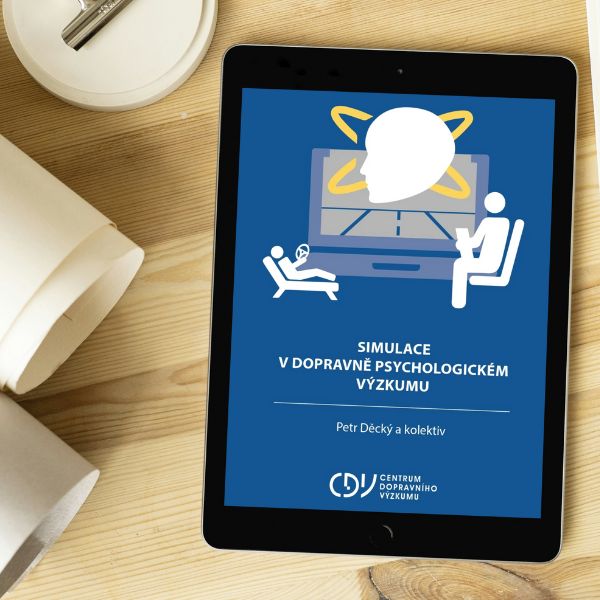
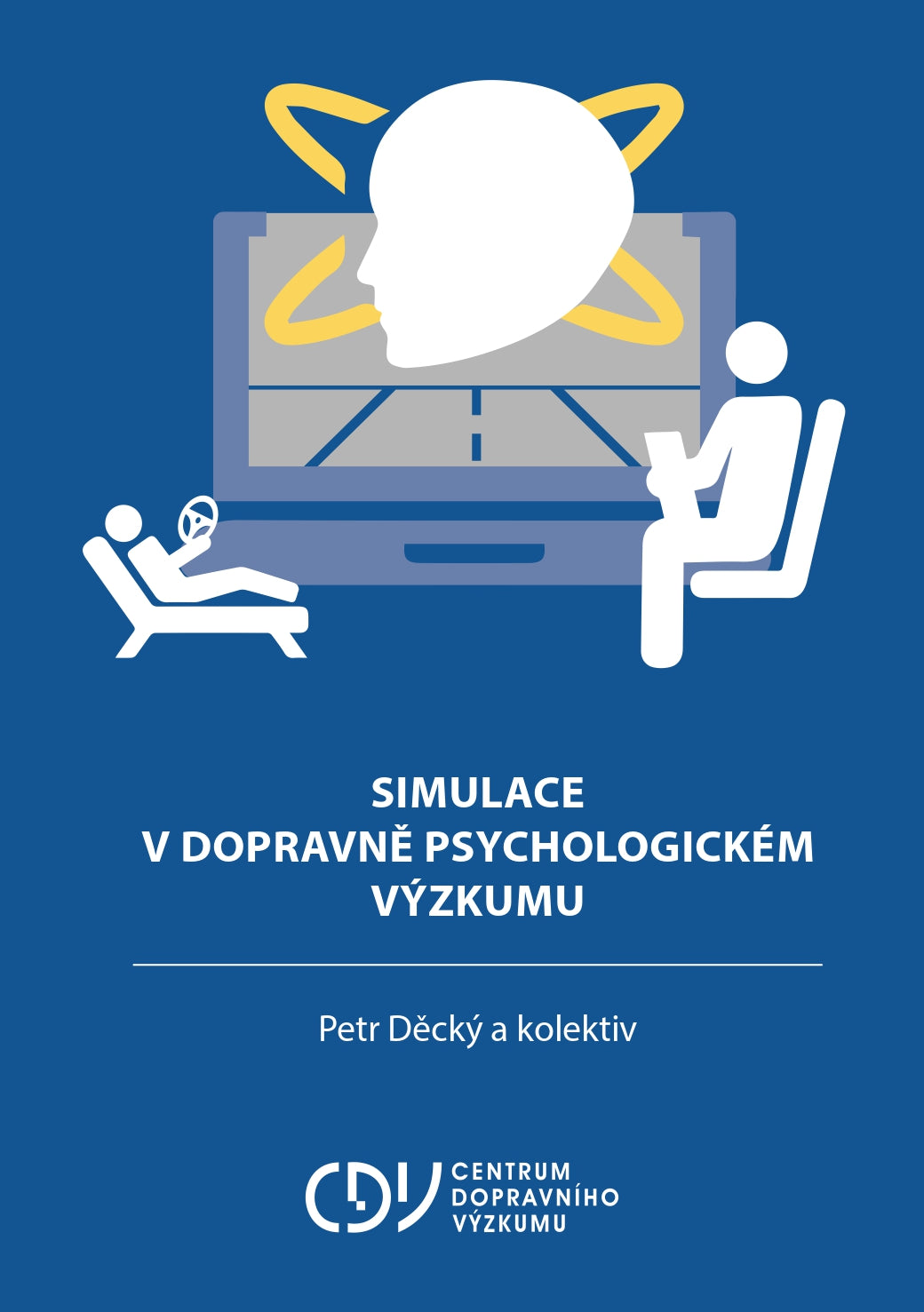
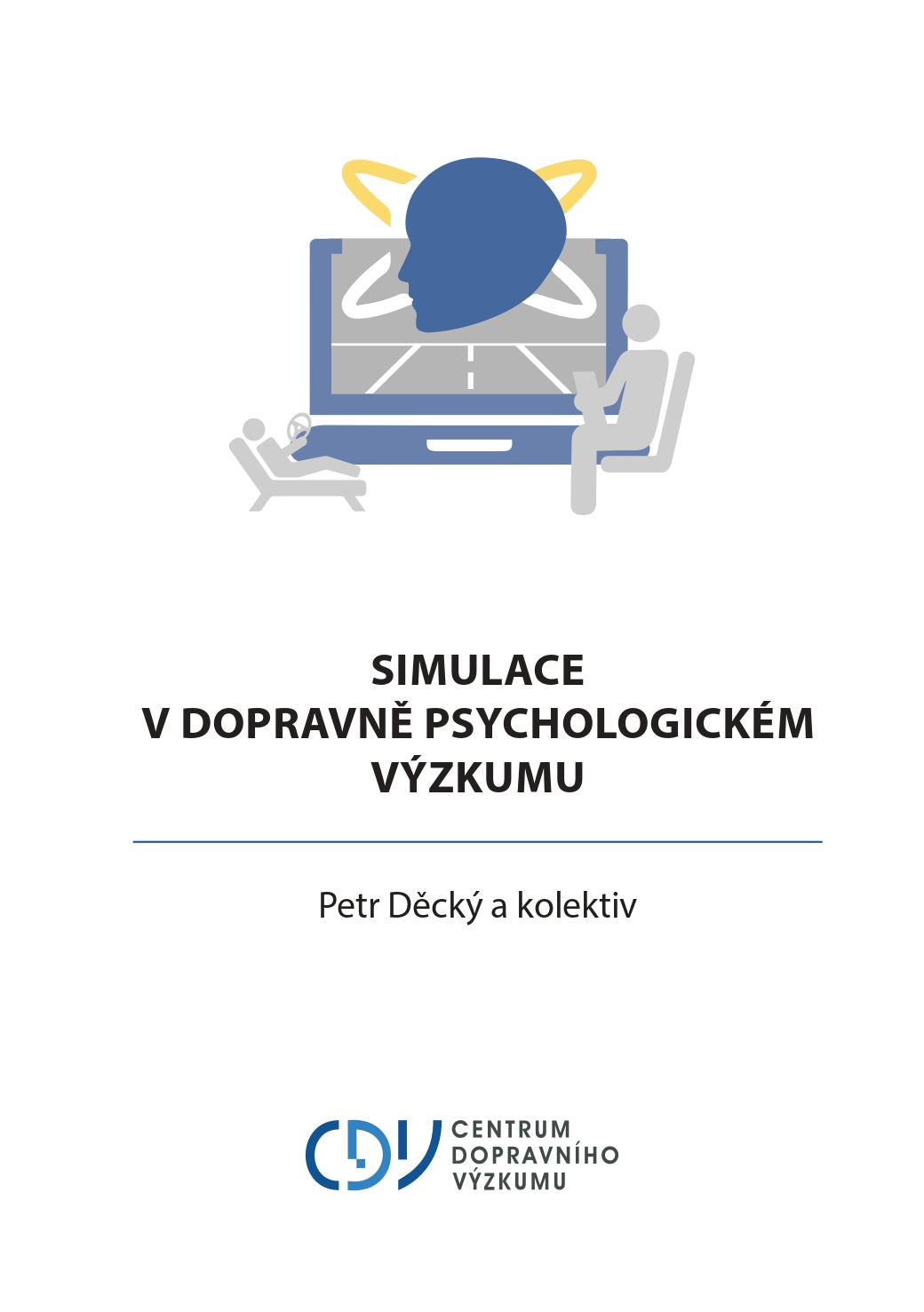
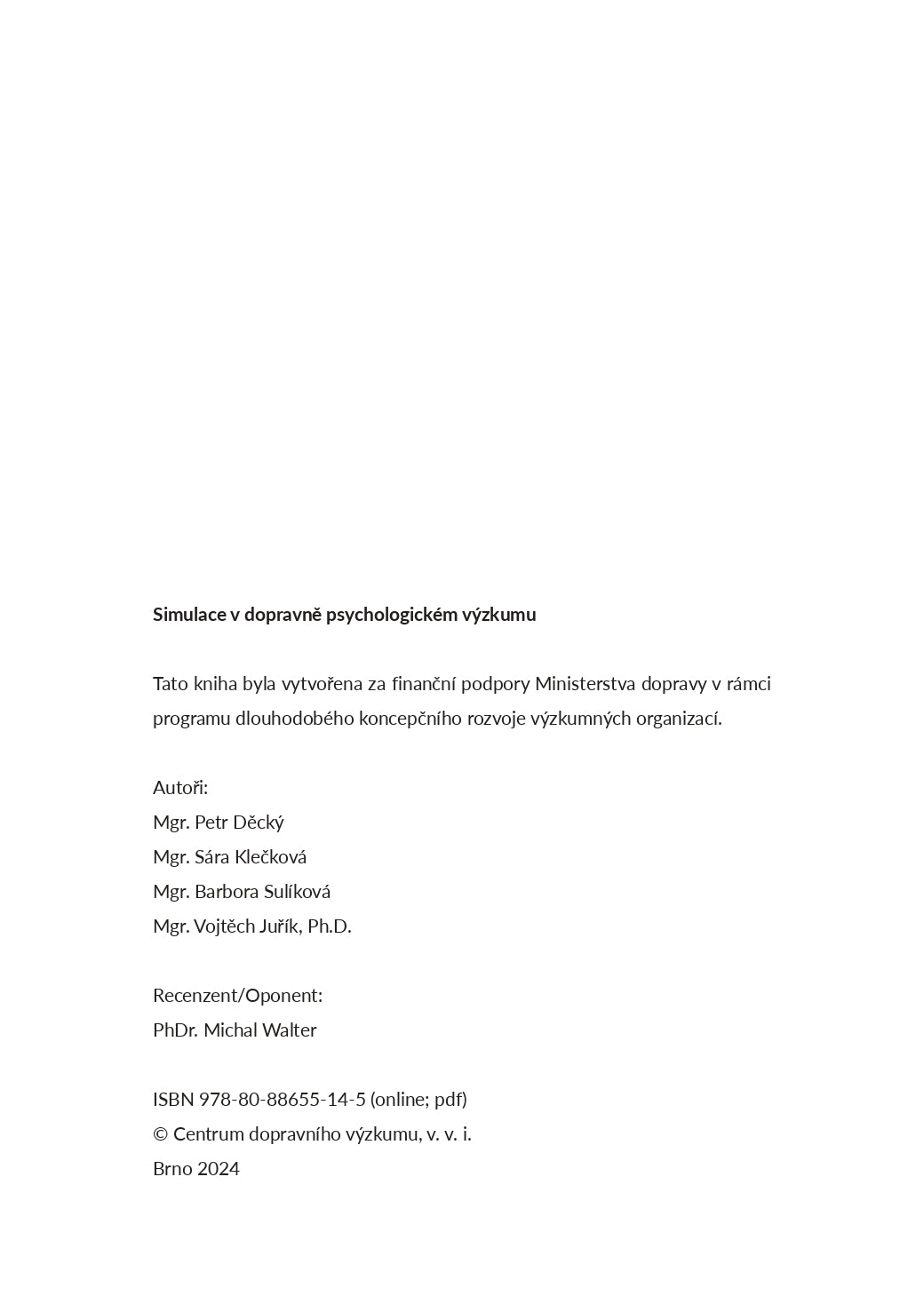
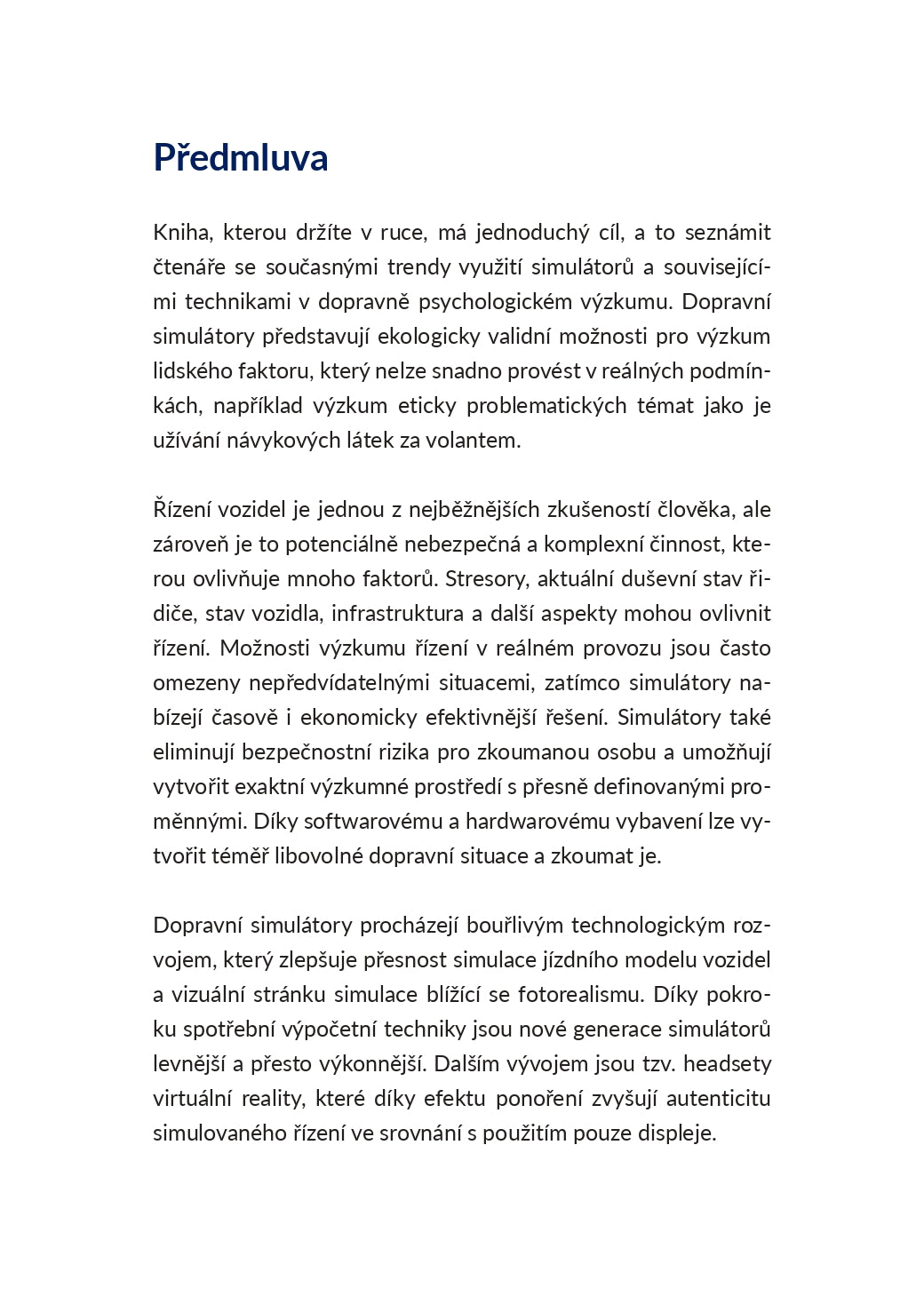
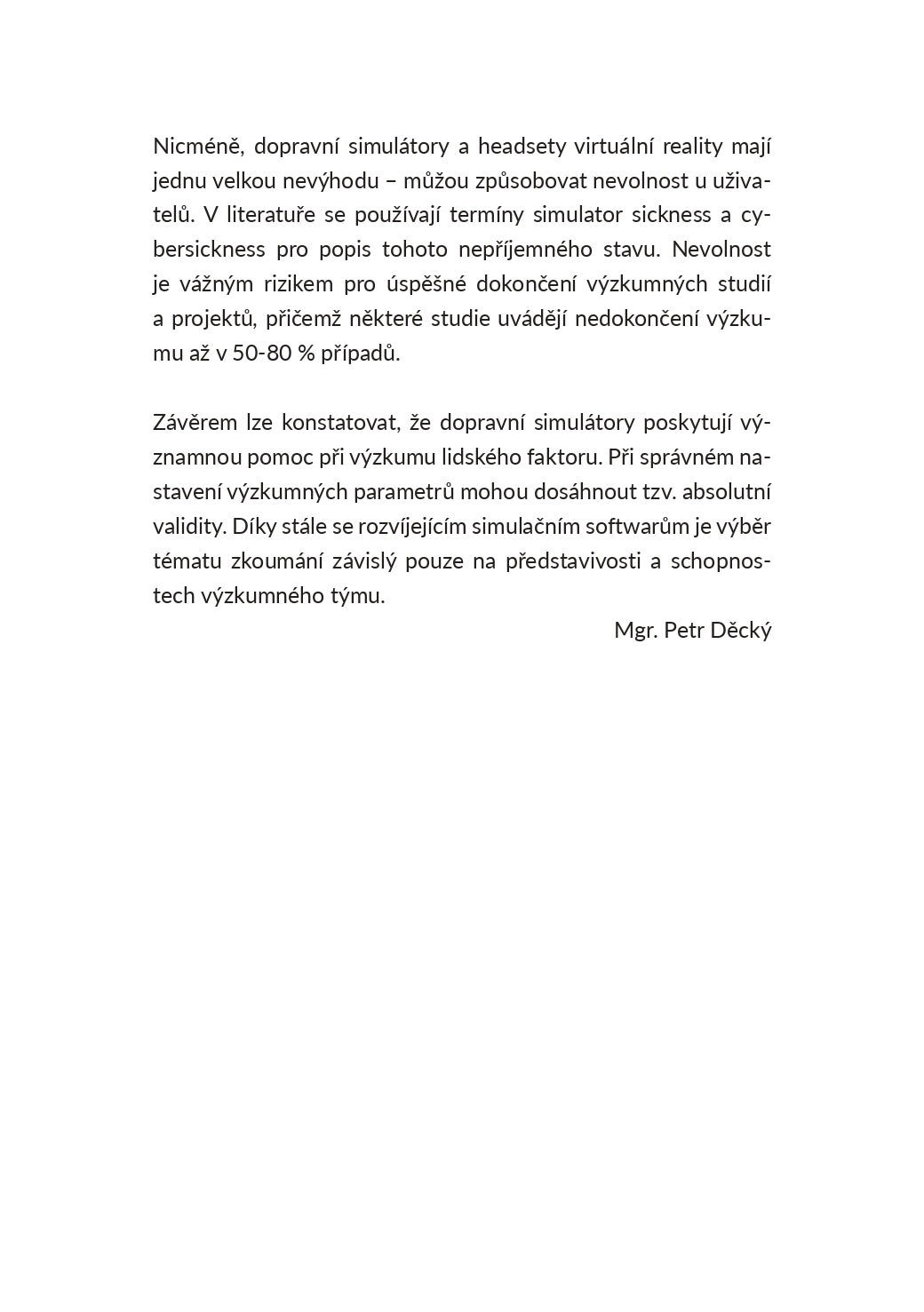
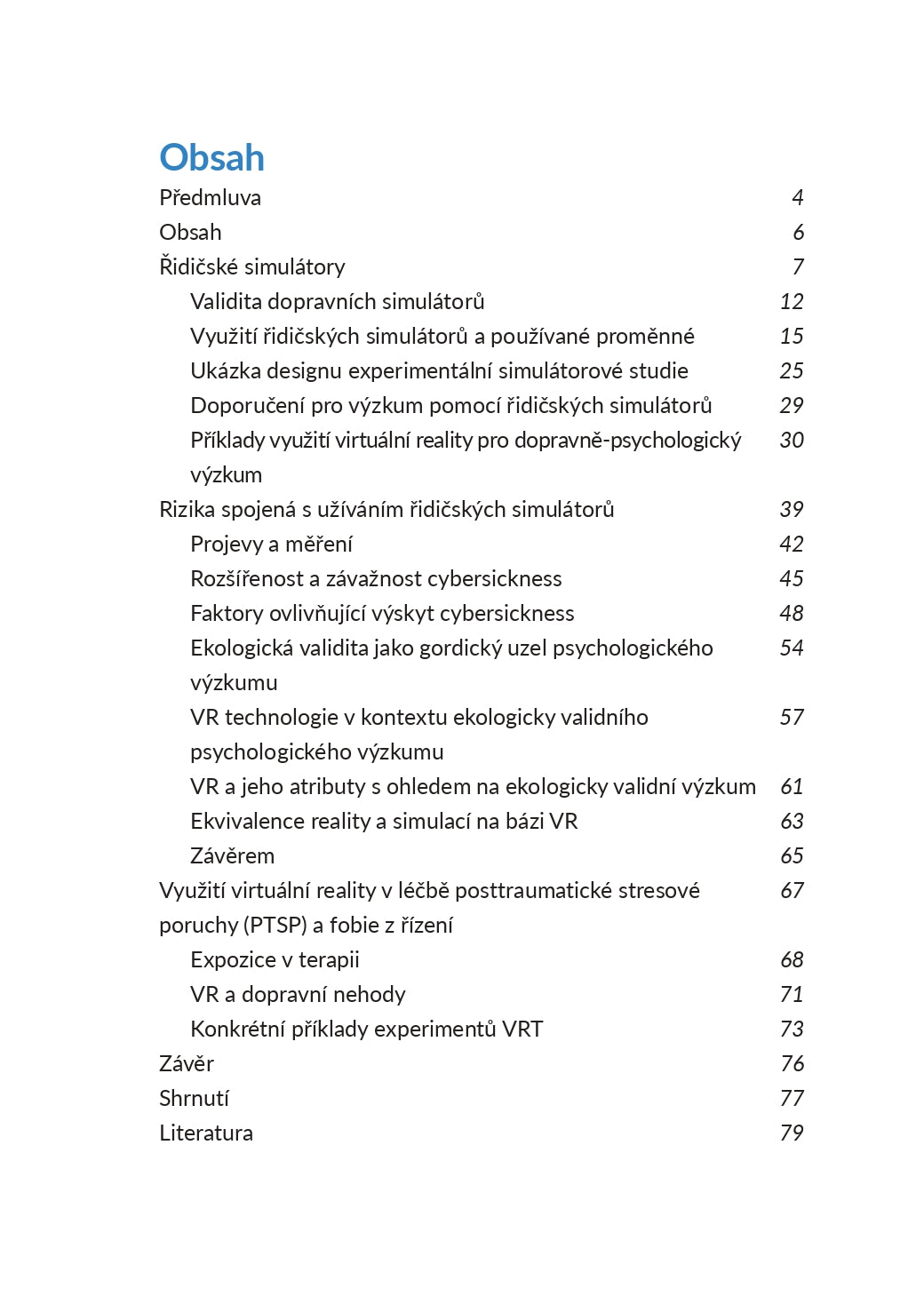
Detail
Author
- Children's P.
- Klecková S.
- Sulíková B.
- Jurik V.
Content
1. Driving simulators
1.1. Validity of traffic simulators
1.2. Use of driving simulators and variables used
1.3. Example of an experimental simulator study design
1.4. Recommendations for research using driving simulators
1.5. Examples of the use of virtual reality for traffic psychological research
2. Risks associated with the use of driving simulators
2.1. Manifestations and measurements
2.2. Prevalence and severity of cybersickness
2.3. Factors influencing the occurrence of cybersickness
2.4. Ecological validity as a Gordian knot in psychological research
2.5. VR technology in the context of ecologically valid psychological research
2.6. VR and its attributes with regard to ecologically valid research
2.7. Equivalence of reality and VR-based simulations
2.8. In conclusion
3. The use of virtual reality in the treatment of post-traumatic stress disorder (PTSD) and driving phobia
3.1. Exposure in therapy
3.2. VR and traffic accidents
3.3. Specific examples of VRT experiments
Dedication
This book was created with the financial support of the Ministry of Transport within the program of long-term conceptual development of research organizations.
Colophon
ISBN 978-80-88655-14-5 (online; pdf)
Year of publication
2024
